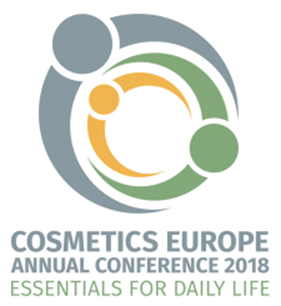Achieving regulatory convergence in the US$465bn global cosmetics industry (Euromonitor 2017 figures) is an important long term goal, industry experts agreed at European personal care product association Cosmetics Europe's 13-14 June 2018 annual conference in Brussels.
Europe is a key market for this industry – providing €77.6bn worth of personal care product sales last year, and supporting more than two million jobs, said Cosmetics Europe's President, Loïc Armand, also President of L'Oréal France.
Salvatore d'Acunto, Head of Unit, Health, Technology and Cosmetics at the European Commission's Directorate-General for Internal Market, Industry, Entrepreneurship and SMEs (DG GROW), said the European Union's (EU) flagship cosmetics regulation, in force for five years and seen as a model by many non-EU countries, should be the "global standard".
Elements of the regulation have been adopted and adapted into legislation in ASEAN (Association of Southeast Asian Nations), Latin American and some Middle East countries, he noted.
Will this process continue? "Regulatory convergence will happen, but slowly," said Procter & Gamble's Associate Director of Regulatory Affairs and Technical Support for IMEA (India, Middle East and Africa) and global distributor markets, John Humphreys.
"Change takes years, not months – that's our reality," he told a 13 June session at the meeting entitled 'Towards greater international regulatory convergence'.

Five-year forecast
For now, Humphreys, who also chairs the international executive committee at the Washington DC, US-based Personal Care Products Council (PCPC), said: "We'll undoubtedly see greater convergence over the next five years, with more degrees of similarity than today, most notably in
